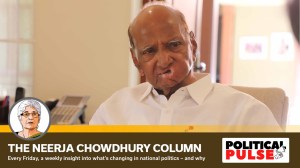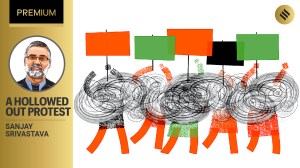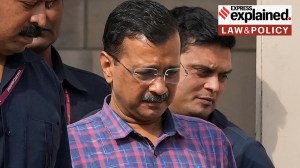- India
- International
Kathmandu mirage
By missing another deadline for new constitution, Nepal’s political parties undermine own credibility.
Nepal’s squabbling political parties have failed the people yet again by missing the deadline to promulgate the country’s constitution. Violence broke out in the House last Tuesday, two days before the deadline ended, after the UCPN (Maoist)-led opposition refused to let the ruling alliance use its two-third majority in the Constituent Assembly (CA) to push through the document. Pushpa Kamal Dahal “Prachanda”, the leader of the Maoists, has since apologised for the violence, though he refused to budge from the party’s stated position that the constitution could be adopted only through a consensus among the major parties, and not by a House majority.
Though the first CA was elected in 2008, a consensus on the constitution on crucial issues including federalism, secularism, the structure of government and the judiciary has eluded the major political parties. While the Nepali Congress and the CPN-UML want multi-ethnic federal states, others are pushing for ethnicity to be the basis of statehood. There is no agreement on whether the electoral system ought to be the first-past-the-post, proportional vote or a mix of both. A small but vocal section insists that the secular republic restate its Hindu identity. The Maoists, who dominated the CA after the 2008 election, could not deliver a constitution within the four-year term and lost majority to the NC and CPN-UML in the assembly constituted in 2013. With the parties pulling in different directions, the CA has been reduced to a forum where they reaffirm stated positions, instead of a platform for substantive debate. There is now an urgent need for the political mainstream to introspect and converge on mutually acceptable principles and positions. The four major parties — namely, the NC, CPN-UML, UCPN (Maoist) and the Madhes Janadhikar Forum — need to take the lead to end the stalemate.
Palace intrigues and a decade of Maoist insurgency have wrecked Nepal’s economy and its social fabric. If the parties continue to fight, the country could slip back into civil war and the state of dependency that prevailed until 2006 — splinter Maoist outfits have started talking of a return to armed struggle. Chaos in Kathmandu could complicate the already complex matrix of South Asia. If that happens, Nepal’s political parties would have no one but themselves to blame.
EXPRESS OPINION
Must Read
More Explained
May 11: Latest News
- 01
- 02
- 03
- 04
- 05
































